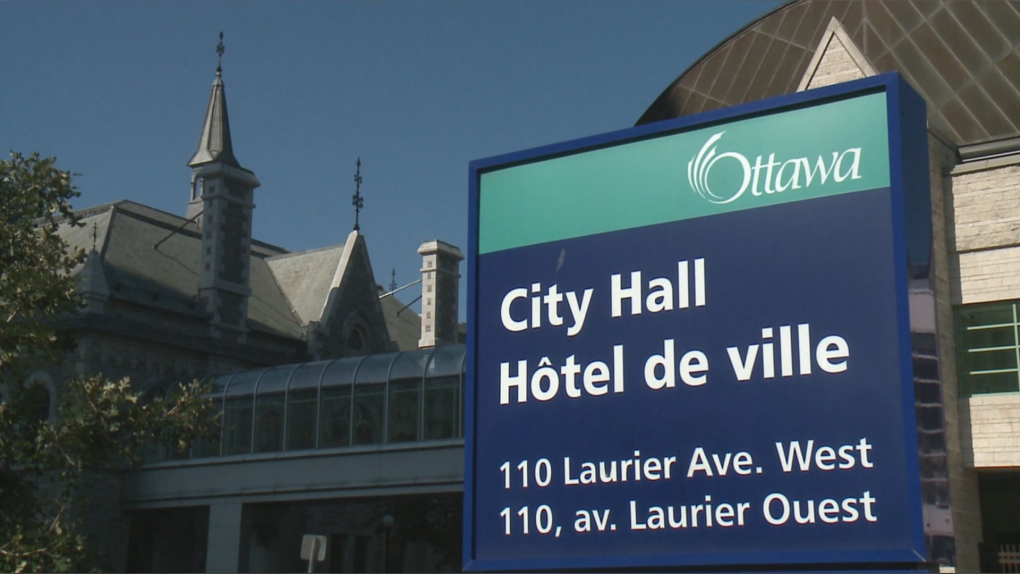Council approves Ottawa's planning roadmap for the next 25 years
 Ottawa City Hall. (File photo)
Ottawa City Hall. (File photo)
Council has approved Ottawa's new Official Plan, the roadmap for development in Canada's capital over the next 25 years.
As part of the Official Plan, Ottawa's boundary will expand by 1,350 to 1,650 hectares by 2046, helping to accommodate for an extra 450,000 residents in the capital.
The city of Ottawa says the plan is designed to help Ottawa become a "city of connected, green, inclusive and walkable communities, with greater density of housing, employment and services around rapid-transit hubs and along transit corridors."
The Official Plan will guide growth and redevelopment in Ottawa until 2046, focusing on five policy changes.
- Growth – encouraging more growth through intensification and providing more affordable housing
- Mobility – promoting sustainable transportation and encouraging complete streets.
- Urban Design – ensuring intensification happens in ways that benefit the streets and communities involved
- Resiliency – bringing environment, climate and health considerations to the forefront of planning
- Economy – establishing a strong relationship between land use and economic development
Council voted 21 to 2 in favour of the plan Wednesday afternoon. Coun. Jeff Leiper and Rick Chiarelli voted against the overall plan.
The city began consultations on the new Official Plan back in 2019
As part of the new Official Plan, the urban boundary will expand by between 1,350 and 1,650 hectares over the next 25 years. The plan includes intensification targets of 51 per cent, riding to 60 per cent by 2045.
As part of the boundary expansion, council approved the Tewin development in rural southeast Ottawa. The Algonquins of Ontario and Taggart are planning a new satellite community of 45,000 residents.
Staff have said developing the property will be expensive.
Coun. Diane Deans said the decision to include the Tewin development was political, not a logical decision.
"The group involved in Tewin is a realty corporation that the Algonquin Anishinaabe Nation has not been properly consulted, that this is actually setting back reconciliation with the first nations," said Deans during the debate.
The City projects Ottawa's population will grow by 450,000 people by 2046, requiring 195,000 more homes.
CTVNews.ca Top Stories

Canadian team told Trump's tariffs unavoidable right now, but solutions on the table in surprise Mar-a-Lago meeting
During a surprise dinner at Mar-a-Lago, representatives of the federal government were told U.S. tariffs from the incoming Donald Trump administration cannot be avoided in the immediate term, two government sources tell CTV News.
Pedestrian killed by Via Rail train near Kingston, Ont.
Regular rail traffic has resumed with severe delays.
Muskoka reacts to major snowfall, hundreds stuck on Highway 11
From road closures, power outages, weather declarations and nonstop shovelling, Muskoka residents were faced with nearly a metre of persistent snowfall on Saturday.
Saskatoon priest accused of sexual assault says he meant to encourage young girl with hug and kiss
A Saskatoon priest accused of sexual assault says he meant to encourage and reassure a young girl when he hugged and kissed during his testimony at Saskatoon Provincial Court Friday.
Beef prices reach record highs in Canada
The cost of beef continues to rise, reaching record highs on grocery store shelves ahead of the busiest time for many grocers and butchers before the holiday season.
Trump threatens 100% tariff on the BRIC bloc of nations if they act to undermine U.S. dollar
U.S. president-elect Donald Trump on Saturday threatened 100 per cent tariffs against a bloc of nine nations if they act to undermine the U.S. dollar.
Bob Bryar, drummer for rock band My Chemical Romance, dead at 44
Bob Bryar, former drummer for the band My Chemical Romance, has died. He was reportedly 44.
Toronto man accused of posing as surgeon, giving four women injections
A 29-year-old Toronto man has been charged after allegedly posing as a surgeon and providing cosmetic procedures on several women.
'Disappointing': Toronto speed camera cut down less than 24 hours after being reinstalled
A Toronto speed camera notorious for issuing tens of thousands of tickets to drivers has been cut down again less than 24 hours after it was reinstalled.

































